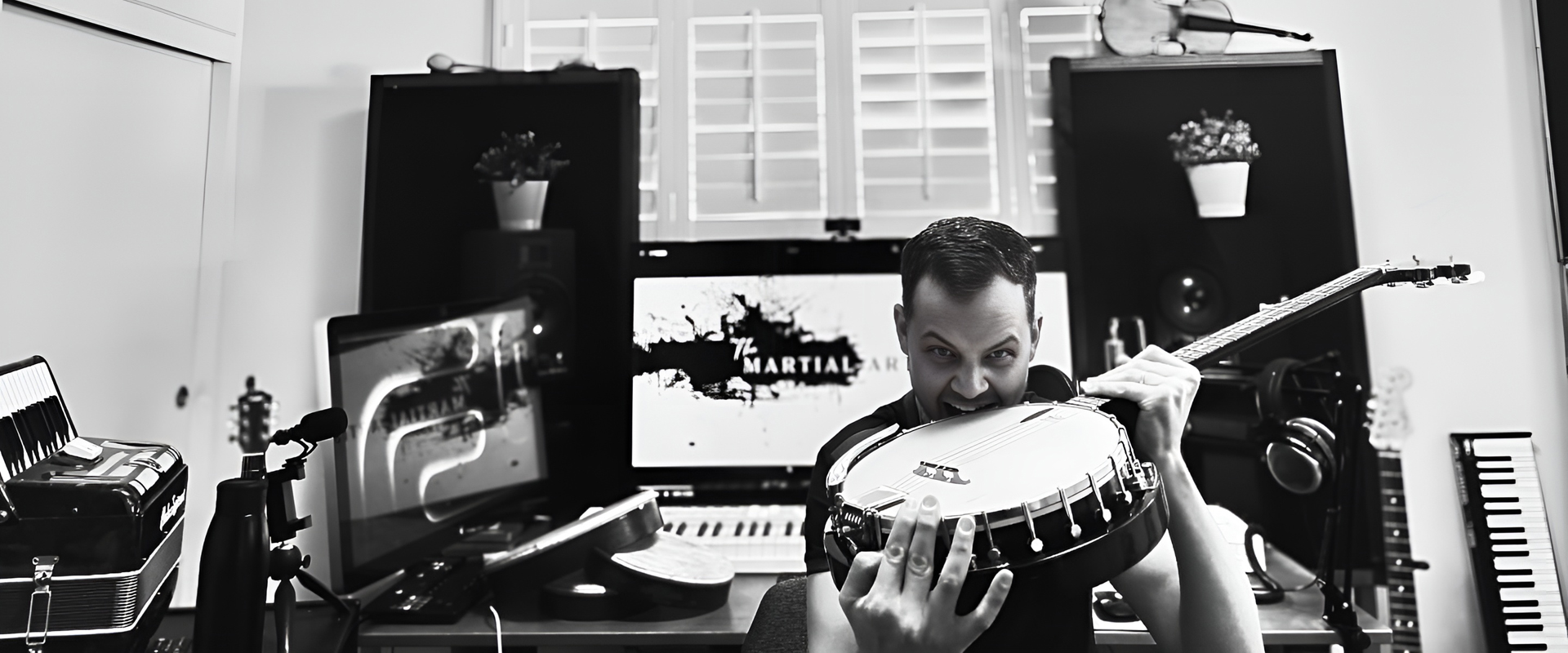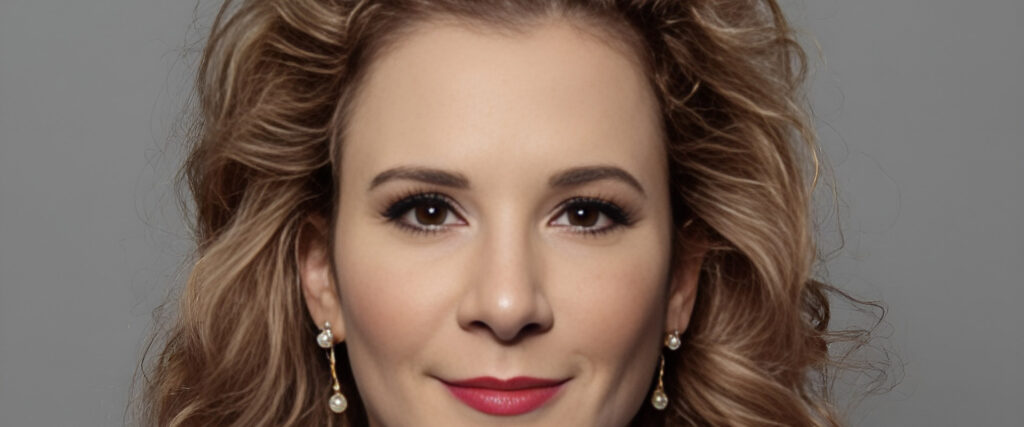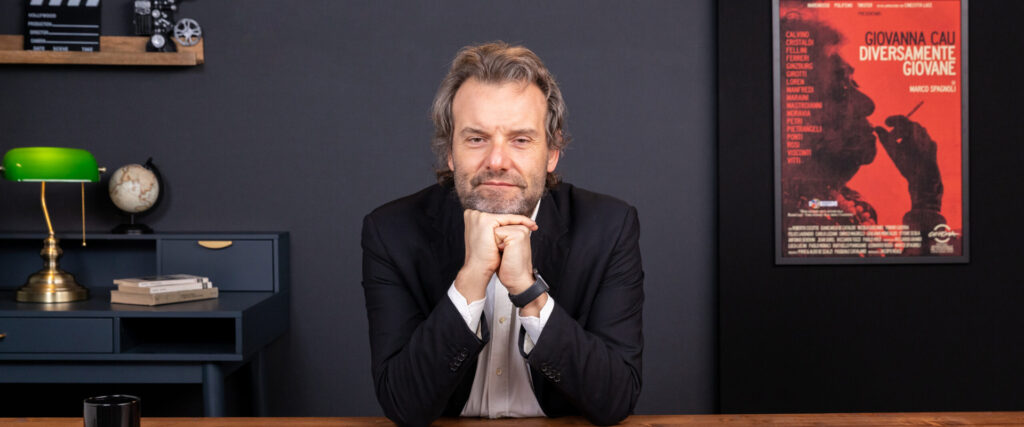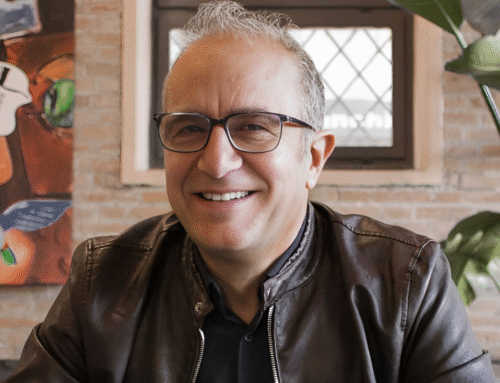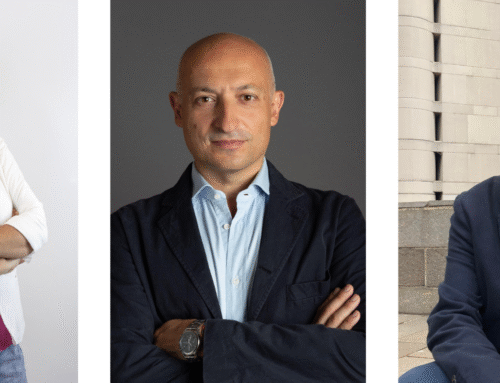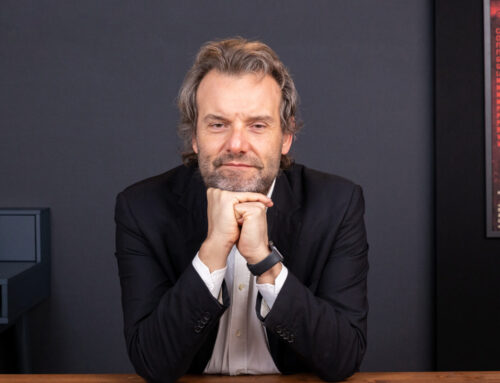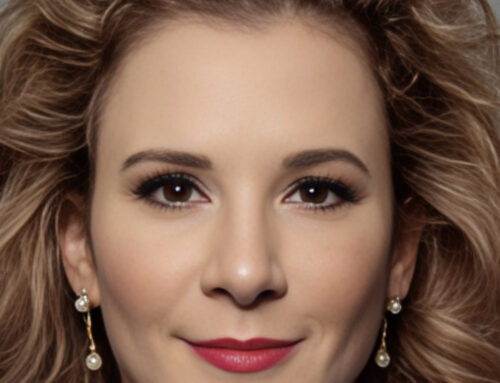Interview with Daniele Truocchio
From Italy to Hollywood: A Composer’s Journey of Innovation and Impact
Daniele Truocchio is a highly talented composer and social entrepreneur, renowned for creating captivating and emotive soundtracks. His mastery in blending tradition and innovation has established him as a standout figure in the international music scene.
How did your journey lead you to the United States, and what inspired you to pursue a career in music here?
During my last year of high school, a friend mentioned a festival called the Umbria Jazz Festival, where Berklee College of Music would be leading a two-week workshop. At the end of the workshop, Berklee would select about 10 students out of the 200-300 attending and award them scholarships to study at their college in Boston. I had been involved with music since I was 8 years old, studying classical composition and guitar at the Conservatory Ottorino Respighi of Latina, taking private rock lessons, and playing in bands. Since I had recently developed a passion for jazz, the Umbria Jazz Festival felt like a fantastic opportunity to explore that world.
Fast forward to the end of the two weeks — I won a scholarship to attend Berklee College of Music in Boston, and that’s how my life changed. Until that point, I had never even dreamed of living in the U.S. In fact, my family and I thought I would only attend Berklee for one or two semesters. This year marks my 10th anniversary of being in the United States, and it’s been a journey beyond anything I could have imagined.
Being one of the few film composers featured in Forbes’ 30 Under 30 Entertainment list is a remarkable achievement. How has this recognition impacted your career and creative process?
The Forbes community is fantastic and has significantly expanded my network. It’s connected me with top-level professionals, investors, and founders from a wide range of industries – I still remember the day I got the news, opening Forbes and seeing my face near Khaby Lame and the band Måneskin. I’ve met people working on everything from supersonic jets to billion-dollar startups and world-famous influencers. It’s incredibly inspiring to be part of a group of people who are so driven and committed to their visions. One day, a friend shares a business idea, and a few months later, you see that idea turn into a company that’s raised millions in funding or sold tens of thousands of products. It’s a constant reminder of what’s possible with hard work and dedication. I’m especially proud to be one of the few Italians in Los Angeles to have been included in the Forbes 30 Under 30 list. It feels incredible to represent both my personal journey and my Italian heritage in such a competitive and creative environment. This recognition didn’t change the way I create music, but it has undoubtedly been one of the most exciting experiences of my life. It also inspired me to create “Crescendo Music Program” a social initiative aimed at bringing high-level music education back to schools in Los Angeles County. In just a few months since its inception, the program has delivered nearly 1,000 hours of music classes, taught by world-class musicians from Berklee, Julliard, Grammy nominated, or touring musicians, built state-of-the-art music production studios in schools, and organized field trips to visit renowned music studios around the city. Just a few days ago, in one of those movie-like yellow school buses, I accompanied 20 high school students to visit “Cow on the Wall” the studio of Blake Neely and Sherri Chung—award-winning composers behind projects like The Flash, Riverdale, You, Kung Fu, All American, and many more!
You’ve collaborated on high-profile projects like Legacies, Pretty Little Liars, and Extremely Wicked, Shockingly Evil and Vile. How do you approach scoring for such diverse genres and mediums?
For better or worse, I’ve never been the kind of person to say, “I’m only going to work in this genre or that genre.” I’ve always embraced variety. While I was in high school and attending the classical conservatory, I’d sneak into jazz classes. Then, an hour later, I’d be doing classical counterpoint. After that, I’d head home to rehearse with a rock band. It was a bit of an unusual path, and sometimes I felt awkward about it because I’d see classical musicians criticize jazz players, and jazz players criticize rock musicians. But looking back, I think that open-minded approach is what allowed me to develop the mental flexibility I have today.
When I’m offered a scoring project in a genre I’ve never done before, it’s always a little scary. But thanks to my eclectic background, I’m able to adapt and find a way to make it work. I’ve learned to trust in the process and lean into my curiosity, and I know that 1000 sketches later the right idea will “magically” come.
Your mentorship with Senegalese guitarist Peace Diouf played a pivotal role in shaping your understanding of world music. How has this influenced your compositions for film and television?
I can safely say that Peace is the reason I won the scholarship to Berklee. I used to go to his house every week at 6:00 a.m. — which is saying something, considering I was a teenager at the time! Before we even started playing, he’d assign me these incredibly tough guitar warm-ups. I had to do them without stopping for however long he decided that day. If I stopped, the clock would reset, and I’d have to start again. It was “brutal”, but it taught me discipline and the value of hard work.
Peace also taught me to believe in myself. When I told him about the Berklee scholarship opportunity, he looked me in the eyes and said, “You will win one.” I’ll never forget that moment. I would make jokes about how crazy what he was saying was, but the confidence he showed pushed me to work harder than I ever had before. I’d wake up at 6:00 a.m. every day to practice. He saw potential in me before I saw it in myself, and that shifted the trajectory of my career. Musically, Peace showed me that there are no limits. Every musician has something unique to offer, and that’s a philosophy I’ve carried into my work as a composer. If I ever get creatively stuck, I think of Peace’s approach to music and his belief in me. That’s usually enough to push me through the creative block.
What advice would you give to aspiring composers, particularly those from international backgrounds, looking to make their mark in Hollywood, and how has your experience as a mentor for the GRAMMYU program shaped the way you guide and inspire the next generation of musicians?
This is a tough question because the industry is constantly changing. My best advice would be to stay open-minded and not get stuck in the “old way” of doing things. I’ve seen friends succeed by building strong reputations in their home countries before coming to Los Angeles, which has helped them overcome the fear of “surviving” the first few crucial years in the city. I’ve also seen friends use social media to break into the Hollywood scene. There’s no one-size-fits-all path anymore, so be open to different ways of getting there, and don’t trust those that say things like: this is how it has always worked, you HAVE to do it this or that way – nothing in the industry is like it was 10 years ago!
As a mentor for the GRAMMYU program, I’ve had the chance to work with young, hungry musicians who are full of fresh ideas. The most important thing I’ve learned from mentoring is that every generation has its own unique approach to music and creativity. My role is not to tell them to “do it my way” (I don’t even know what “my way” looks like, ahah) but to help them find their way. I’ve seen how powerful it is when young composers feel supported and empowered to follow their own instincts. It’s rewarding to see them grow and develop their own voices in the industry. For example, I remember a few years ago, agreeing to do a zoom call with a fresh Berklee graduate that needed some guidance. She was scared about the future and didn’t know who to ask questions to. She is now a social media super-star, signed with a big record label for classical music and is doing great in the film scoring world! Every time I meet her she tells everyone around that I was the first person in the industry that trusted and supported her, and that’s the best feeling in the world!
Can you reveal a future project you will be working on?
I can’t reveal the project I’m currently scoring, but I’m very excited about “The Martial Artist”, a feature film I scored a while ago that will be released on April 4th, 2025 in theaters worldwide. Directed by Shaz Khan, the film stars Khan himself alongside Pakistani superstar Sanam Saeed and Iron Man actor Faran Tahir, who recently joined Marvel Studios’ upcoming Vision series. The Martial Artist is a stunning film that takes audiences on a captivating journey between the United States and Pakistan.
Share:
From Italy to Hollywood: A Composer’s Journey of Innovation and Impact
Daniele Truocchio is a highly talented composer and social entrepreneur, renowned for creating captivating and emotive soundtracks. His mastery in blending tradition and innovation has established him as a standout figure in the international music scene.
How did your journey lead you to the United States, and what inspired you to pursue a career in music here?
During my last year of high school, a friend mentioned a festival called the Umbria Jazz Festival, where Berklee College of Music would be leading a two-week workshop. At the end of the workshop, Berklee would select about 10 students out of the 200-300 attending and award them scholarships to study at their college in Boston. I had been involved with music since I was 8 years old, studying classical composition and guitar at the Conservatory Ottorino Respighi of Latina, taking private rock lessons, and playing in bands. Since I had recently developed a passion for jazz, the Umbria Jazz Festival felt like a fantastic opportunity to explore that world.
Fast forward to the end of the two weeks — I won a scholarship to attend Berklee College of Music in Boston, and that’s how my life changed. Until that point, I had never even dreamed of living in the U.S. In fact, my family and I thought I would only attend Berklee for one or two semesters. This year marks my 10th anniversary of being in the United States, and it’s been a journey beyond anything I could have imagined.
Being one of the few film composers featured in Forbes’ 30 Under 30 Entertainment list is a remarkable achievement. How has this recognition impacted your career and creative process?
The Forbes community is fantastic and has significantly expanded my network. It’s connected me with top-level professionals, investors, and founders from a wide range of industries – I still remember the day I got the news, opening Forbes and seeing my face near Khaby Lame and the band Måneskin. I’ve met people working on everything from supersonic jets to billion-dollar startups and world-famous influencers. It’s incredibly inspiring to be part of a group of people who are so driven and committed to their visions. One day, a friend shares a business idea, and a few months later, you see that idea turn into a company that’s raised millions in funding or sold tens of thousands of products. It’s a constant reminder of what’s possible with hard work and dedication. I’m especially proud to be one of the few Italians in Los Angeles to have been included in the Forbes 30 Under 30 list. It feels incredible to represent both my personal journey and my Italian heritage in such a competitive and creative environment. This recognition didn’t change the way I create music, but it has undoubtedly been one of the most exciting experiences of my life. It also inspired me to create “Crescendo Music Program” a social initiative aimed at bringing high-level music education back to schools in Los Angeles County. In just a few months since its inception, the program has delivered nearly 1,000 hours of music classes, taught by world-class musicians from Berklee, Julliard, Grammy nominated, or touring musicians, built state-of-the-art music production studios in schools, and organized field trips to visit renowned music studios around the city. Just a few days ago, in one of those movie-like yellow school buses, I accompanied 20 high school students to visit “Cow on the Wall” the studio of Blake Neely and Sherri Chung—award-winning composers behind projects like The Flash, Riverdale, You, Kung Fu, All American, and many more!
You’ve collaborated on high-profile projects like Legacies, Pretty Little Liars, and Extremely Wicked, Shockingly Evil and Vile. How do you approach scoring for such diverse genres and mediums?
For better or worse, I’ve never been the kind of person to say, “I’m only going to work in this genre or that genre.” I’ve always embraced variety. While I was in high school and attending the classical conservatory, I’d sneak into jazz classes. Then, an hour later, I’d be doing classical counterpoint. After that, I’d head home to rehearse with a rock band. It was a bit of an unusual path, and sometimes I felt awkward about it because I’d see classical musicians criticize jazz players, and jazz players criticize rock musicians. But looking back, I think that open-minded approach is what allowed me to develop the mental flexibility I have today.
When I’m offered a scoring project in a genre I’ve never done before, it’s always a little scary. But thanks to my eclectic background, I’m able to adapt and find a way to make it work. I’ve learned to trust in the process and lean into my curiosity, and I know that 1000 sketches later the right idea will “magically” come.
Your mentorship with Senegalese guitarist Peace Diouf played a pivotal role in shaping your understanding of world music. How has this influenced your compositions for film and television?
I can safely say that Peace is the reason I won the scholarship to Berklee. I used to go to his house every week at 6:00 a.m. — which is saying something, considering I was a teenager at the time! Before we even started playing, he’d assign me these incredibly tough guitar warm-ups. I had to do them without stopping for however long he decided that day. If I stopped, the clock would reset, and I’d have to start again. It was “brutal”, but it taught me discipline and the value of hard work.
Peace also taught me to believe in myself. When I told him about the Berklee scholarship opportunity, he looked me in the eyes and said, “You will win one.” I’ll never forget that moment. I would make jokes about how crazy what he was saying was, but the confidence he showed pushed me to work harder than I ever had before. I’d wake up at 6:00 a.m. every day to practice. He saw potential in me before I saw it in myself, and that shifted the trajectory of my career. Musically, Peace showed me that there are no limits. Every musician has something unique to offer, and that’s a philosophy I’ve carried into my work as a composer. If I ever get creatively stuck, I think of Peace’s approach to music and his belief in me. That’s usually enough to push me through the creative block.
What advice would you give to aspiring composers, particularly those from international backgrounds, looking to make their mark in Hollywood, and how has your experience as a mentor for the GRAMMYU program shaped the way you guide and inspire the next generation of musicians?
This is a tough question because the industry is constantly changing. My best advice would be to stay open-minded and not get stuck in the “old way” of doing things. I’ve seen friends succeed by building strong reputations in their home countries before coming to Los Angeles, which has helped them overcome the fear of “surviving” the first few crucial years in the city. I’ve also seen friends use social media to break into the Hollywood scene. There’s no one-size-fits-all path anymore, so be open to different ways of getting there, and don’t trust those that say things like: this is how it has always worked, you HAVE to do it this or that way – nothing in the industry is like it was 10 years ago!
As a mentor for the GRAMMYU program, I’ve had the chance to work with young, hungry musicians who are full of fresh ideas. The most important thing I’ve learned from mentoring is that every generation has its own unique approach to music and creativity. My role is not to tell them to “do it my way” (I don’t even know what “my way” looks like, ahah) but to help them find their way. I’ve seen how powerful it is when young composers feel supported and empowered to follow their own instincts. It’s rewarding to see them grow and develop their own voices in the industry. For example, I remember a few years ago, agreeing to do a zoom call with a fresh Berklee graduate that needed some guidance. She was scared about the future and didn’t know who to ask questions to. She is now a social media super-star, signed with a big record label for classical music and is doing great in the film scoring world! Every time I meet her she tells everyone around that I was the first person in the industry that trusted and supported her, and that’s the best feeling in the world!
Can you reveal a future project you will be working on?
I can’t reveal the project I’m currently scoring, but I’m very excited about “The Martial Artist”, a feature film I scored a while ago that will be released on April 4th, 2025 in theaters worldwide. Directed by Shaz Khan, the film stars Khan himself alongside Pakistani superstar Sanam Saeed and Iron Man actor Faran Tahir, who recently joined Marvel Studios’ upcoming Vision series. The Martial Artist is a stunning film that takes audiences on a captivating journey between the United States and Pakistan.

